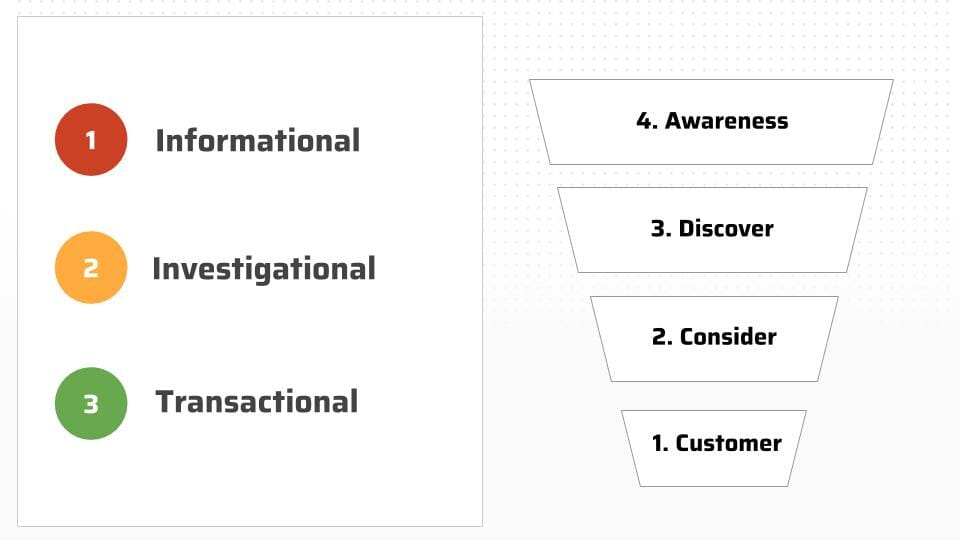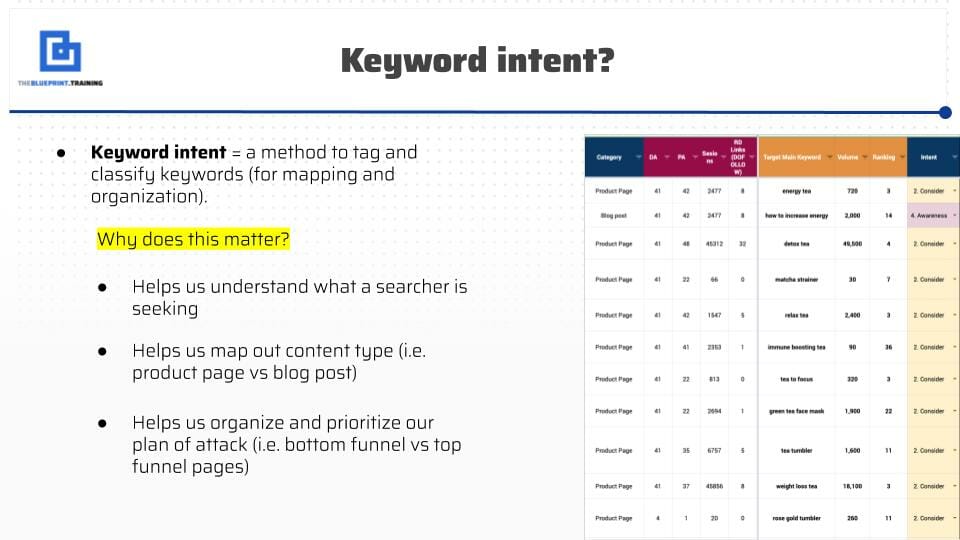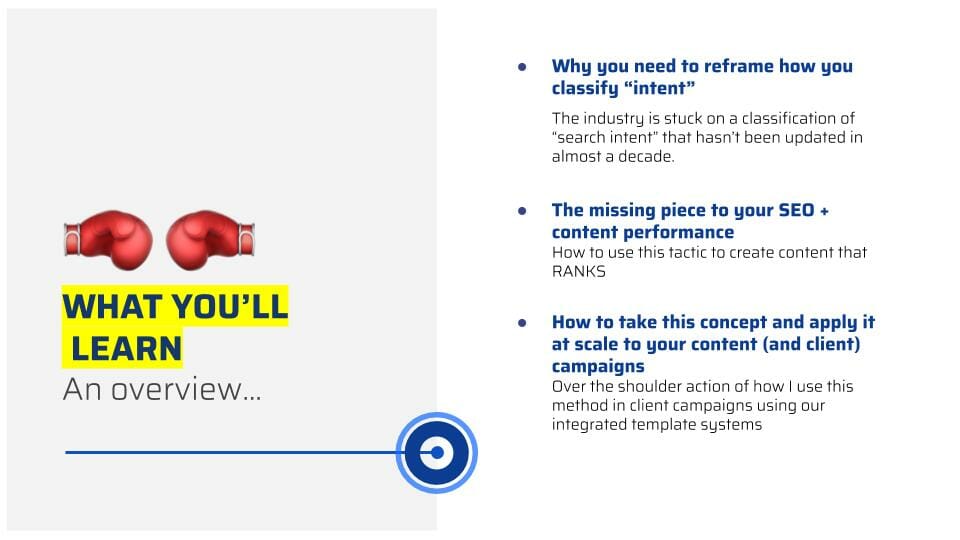Are you struggling to get the content you create to rank in Google search?
I may have your solution – and it’s not what you think.
- It’s not changing the keyword targeting…
- It’s not making the content longer…
- It’s not building links to it…
It’s understanding what I call “SERP intent”.
“SERP intent” is not to be confused with “keyword intent”. You’ve likely seen keyword intent broken out in one of the following ways:
- AIDA (Attention, Interest, Desire, Action)
- Informational, Investigational, Transactional

What’s Keyword Intent?
Mapping intent – the traditional way – helps us understand what type of page we should create for each keyword.
For example, if you run a skincare website, some of your keywords might be:
- “How to get rid of pimples”. This is a top funnel, informational search that would map to a blog post.
- “Order acne cream online”. This is a bottom funnel, transactional search that would map to a product page.

Identifying keyword intent is important, but it’s not enough.
What’s SERP Intent?

If you search Google for “How to get rid of pimples”, you will notice that every result in the SERPs is about “how to get rid of pimples fast”.
If you don’t adjust your content to be focused on “fast”, you will NEVER rank for your target keyword.
Google is not going to rank a generic article when their data is telling them searchers overwhelmingly want to see articles with immediate solutions.
This is how keyword research will fail you.
You’ll spend hours identifying and mapping keywords, but if you don’t take it one step further to find SERP intent, your content might never rank.
SERP intent will let you know exactly how to target that blog post to match what Google wants to rank.
Honestly, just watch the quick video below where I break down exactly how “keyword intent” fails us and an example of why “SERP intent” is so important.
Make sense?
The video above is only a clip – I have a full 30-minute webinar where I break down:
- Why the industry is wrong about keyword intent
- What SERP intent is and the impact it will have on your content’s performance
- How to identify SERP intent
- Over the shoulder analysis of real examples of SERP intent in action

Just hit that big yellow button below to get access.
